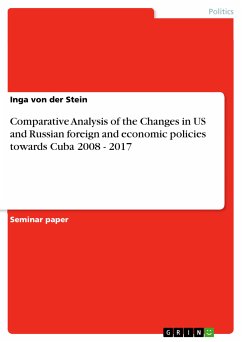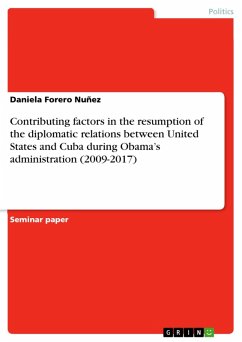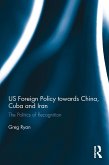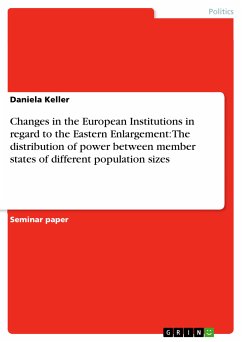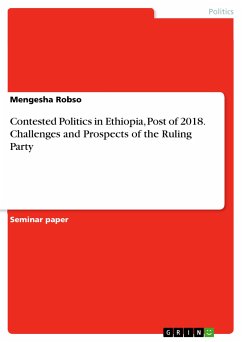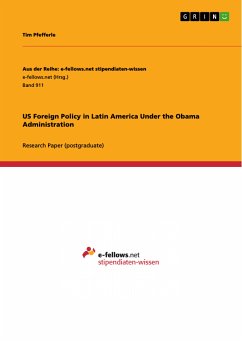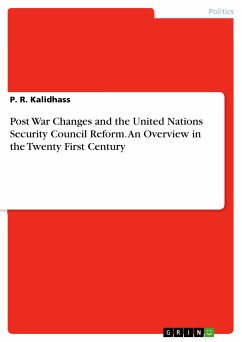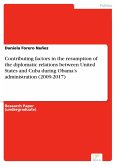Seminar paper from the year 2018 in the subject Politics - Region: Russia, grade: 7,5, University of Kent (School of Politics and International Relations), language: English, abstract: This paper is a comparative case study which investigates the type and sources of the changes in foreign and economic policies by the US and Russia towards Cuba in the time frame of 2008 -2017 for two main reasons: firstly, both the US and Russia changed their policies towards Cuba remarkably in this episode; secondly, US-Russia relations went through several distinctive changes in this period, which arguably influenced their respective relations to Cuba (Stent, 2015, p. 10). To analyse and compare the policy changes, an alternative explanatory model to analyse foreign policy change (FPC) is constructed. This model is constituted by a three-step procedure. As a first step, it employs the sources of FPC as independent variables as outlined by Eidenfalk, while it puts emphasis on the political-institutional setting as an additional independent variable. The second step is constituted by Eidenfalk's "window of opportunity", which needs to be perceived by policy-makers to enact change. The third step is formed by the four degrees of FPC which are employed as dependent variables as put forward by Hermann. This study has both empirical and theoretical aims. The empirical aim is to identify the degree and the most influential factors of the policy changes undertaken by the US and Russia towards Cuba. However, this study also demonstrates broader implications on the similarities and differences of the sources of Russian and US foreign policy-making and moreover, on US-Russia relations in general. Since these two countries have a tremendous effect on world affairs due to their leverage on the world stage, their bilateral relations can considerably affect other players of the international system. Further, this paper adds to the discussion on the future development of Cuba, as the future of the island arguably depends on its relations with Russia and the US. The theoretical aim is to make a contribution to the study of FPC, by combining comparative foreign policy analysis (CFP) with the study of FPC.
Dieser Download kann aus rechtlichen Gründen nur mit Rechnungsadresse in A, B, BG, CY, CZ, D, DK, EW, E, FIN, F, GR, HR, H, IRL, I, LT, L, LR, M, NL, PL, P, R, S, SLO, SK ausgeliefert werden.

